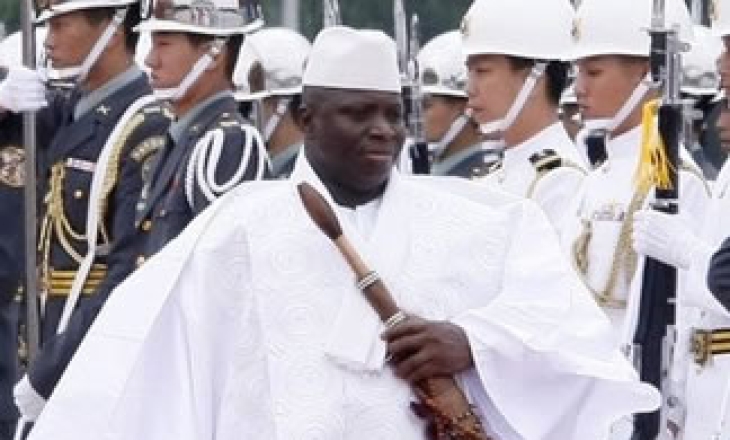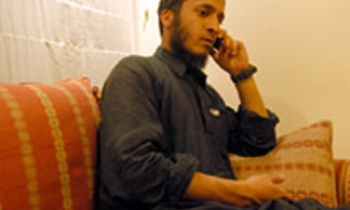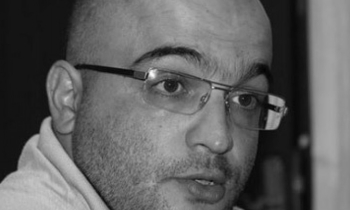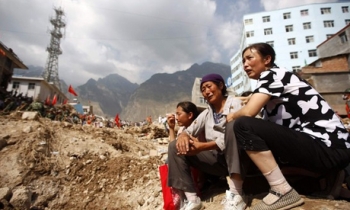Unlawful arrests, detention, torture and unfair trials are increasing in the Gambia, repressing already restricted freedom of expression in the country, say journalists and human rights organizations.
"Since 2004 the situation has been getting worse and worse," Amnesty International's Gambia researcher Tania Bernath told IRIN, "with unlawful detention, torture, arrests, journalists being targeted and forced into exile, self-censorship, killings, threats and even witch-hunts."
"Gambian journalists are worse off today than they ever have been in the past," a Gambian reporter, who requested anonymity, told IRIN. Thirty journalists have fled the country since 2007, said Amnesty, many of them moving to neighbouring countries, others being granted asylum in the USA or UK.
Severe freedom of speech constraints affect all journalists in the country, including those working on government-endorsed newspapers, state-run television GRTS, and private radio stations, which only play music or cover sport, Ndey Tapha Sosseh, president of the Gambia Press Union (GPU), told IRIN.
Eight journalists were arrested on June 12; seven of them on sedition charges, including members of the country's two remaining independent papers Foroyaa and the Point, and GPU representatives. GPU had issued a June 12 statement criticising President Yahya Jammeh for "inappropriate" comments about the 2004 murder of journalist Deyda Hydara; which Foroyaa and the Point published.
"Until the June 12 incident I thought it couldn't get any worse, but I was wrong," Tom Rhodes, Africa head for the US-based NGO Committee to Protect Journalists (CPJ), told IRIN. While not yet on a par with Equatorial Guinea or Eritrea, he added, "Gambia is on its way." IRIN was unable to obtain government comment.
The law
The upsurge in arrests and detention links to the 2004 Criminal Amendment Act, which expanded libel definitions and the possibility of being charged for criminal activity, said the managing director of local NGO Media Agenda's, Madi Sesay.
Most of those arrested are charged with sedition, says Amnesty's Bernath. "What does sedition mean? It could be a meeting, a discussion someone overheard, or even an email sent."
Restrictions on free speech go beyond the media. "We have no freedom of association. There is virtually no civil society left," Sosseh told IRIN. "People are too scared to talk unless they are behind closed doors." Opposition politicians are "denied a voice", said one journalist.
Few people spoke out following a government crackdown on "witches" resulting in the kidnapping of hundreds of Gambians, said Sosseh. "No one spoke out. It is 2009 but it is like being in the dark ages here." Local groups were also guarded when the President called on homosexuals living in Gambia to flee the country or be killed.
Gambians are also too scared to complain about their day-to-day living conditions, Sosseh said. "People are experiencing poverty, people cannot afford food but they cannot talk about it. It is considered to be anti-state... technically, people have no rights in the Gambia."
Some 58 per cent of the population live in poverty, according to the African Development Bank. But taxi driver Samba Bah told IRIN: "I think the regime rightly cares about developing the country and that to me is more important than human rights… the journalists have brought trouble for themselves. The majority of Gambians have not been arrested because they've done nothing wrong."
International pressure
Journalists and activists called on major donors including the US and European Union, to lobby the government harder, and impose stricter aid conditions. The US withdrew a 2006 Millennium account worth millions of dollars because the government did not adhere to human rights eligibility criteria.
But Bernath said further aid withdrawals could hurt Gambians and not their leaders, who are reaching out to new donors, among them Venezuela, Iran and China, that "do not bow to the same kind of pressures that the US or EU has to. Ultimately, western donor actions will be limited as Gambia is of no real strategic interest to them."
However, according to CPJ's Rhodes, civil society, though intimidated, is rallying rather than fracturing. "People are starting to rally behind these journalists – we're seeing growing solidarity in Gambian civil society. It's a huge thing," he said.
And the Press Union will not be silenced, said Sosseh. "Whenever the authorities did things we thought were wrong, we've condemned it," she said. "That is the line we're still taking, even at risk of arrest… Resisting speaking out would not be fair to ourselves or to the Gambia."










